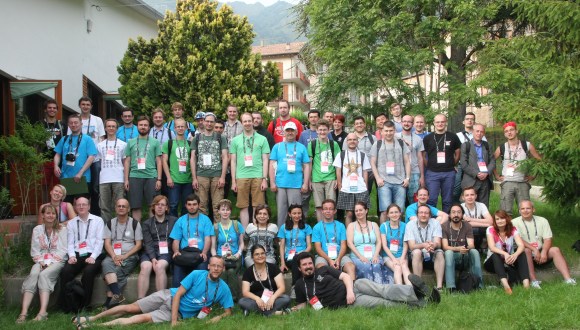
The Wikimedia Foundation’s Project Grants program will launch its first open call on July 1. It will be accepting proposals through August 2 for new ideas to improve Wikimedia projects.
If you are familiar with our old grant programs, you can think of the new Project Grants program as a combination of Individual Engagement Grants (IEG) and Project and Event Grants (PEG). Funds are available to support individuals, groups and organizations to implement new experiments and proven ideas, whether focused on building a new tool or gadget, organizing a better process on your wiki, researching an important issue, coordinating an editathon series or providing other support for community-building.
Recent grants have covered the globe—from Tunisia, Bulgaria, and Korea, to Mexico, India, and Egypt, and many places in between. Project ideas have been equally as diverse: CEE Spring is an annual writing competition in Central and Eastern Europe that draws hundreds of participants and results in thousands of new articles. Women Wikipedia Design supported editing trainings in New York, Berlin, and Melbourne and improved resources that substantially increased the representation of women in architecture and the built environment on Wikipedia. Medicine Translation Project Community Organizing coordinated global volunteers to translate medical Wikipedia articles targeting high-need health care topics by language and region. Batch uploader for small GLAM projects is a software tool to simplify the upload of entire digital collections to Commons from small- and medium-sized museums and other GLAM institutions. WikiProject X overhauled the tools available for WikiProjects, enabling better communication, collaboration and workflow tracking among volunteers seeking to team up around common goals and interests.
You can read about many other project ideas in the IEG or PEG portals on Meta.
If your idea is still a seed, you can share it in our IdeaLab to seek staff mentorship, community feedback, and a team of collaborators to help it evolve. If your idea has community support and your team is developed enough that you just need funding to launch your project, you can easily transform it into a grant proposal and submit it for review.
In the current round, proposals for Project Grants funding will be accepted through August 2. The program has a flexible schedule and reporting structure, and staff will be available on Meta to support you through all stages of the process. Proposals for up to US$100,000 are considered, but we expect first-time grantees or new projects to pilot on a small scale in order to better assess your capacity and community resources.
Other options available to you include the new Rapid Grants program, which funds projects up to US$2,000 with applications accepted at any time. Conferences will now be funded through the Conference and Travel Support program, launching August 2.
After you submit your proposal, it will undergo review to make sure it meets all eligibility criteria. Proposals should support the achievement of Wikimedia’s mission and strategic priorities. We are looking for projects with strong community engagement and a high potential for learning and impact, among other selection criteria. Proposals are commented on by the community and reviewed by the committee before grantees are announced on October 7. We are accepting new committee candidates through July 15.
During the month of July, we’ll be hosting several online Google Hangout sessions for real-time help on how to make your proposal better. The first one will take place on July 5 at 16:00 UTC. By working together we can make an impact on the future of Wikimedia projects. We are excited to see the new ways your project ideas can support the Wikimedia community! Share your idea in IdeaLab or begin your Project Grant request in July. You can start today!
Alex Wang, Senior Program Officer
Marti Johnson, Program Officer, Project Grants
Wikimedia Foundation

Can you help us translate this article?
In order for this article to reach as many people as possible we would like your help. Can you translate this article to get the message out?
Start translation